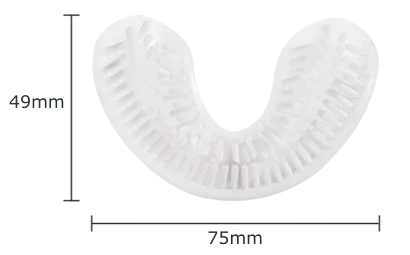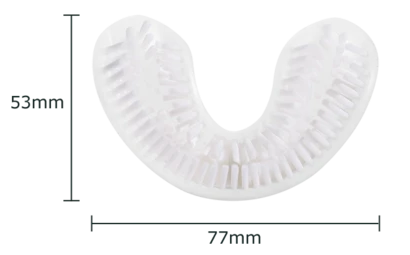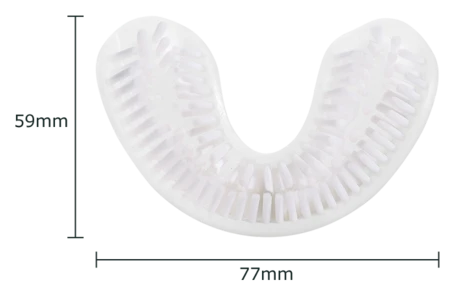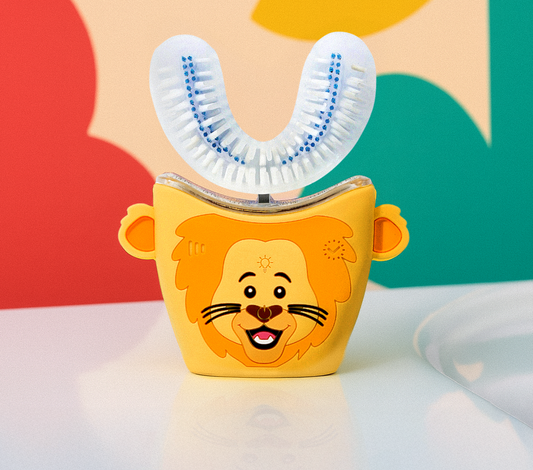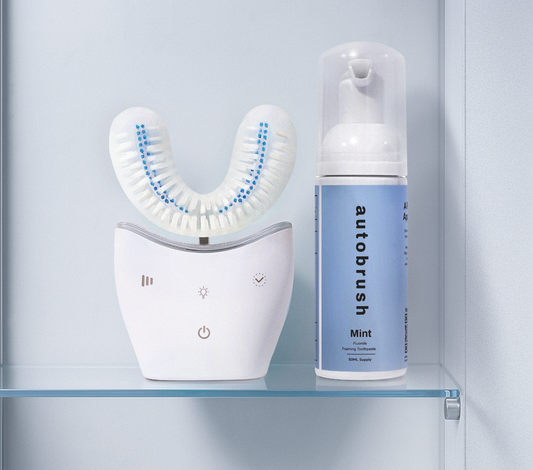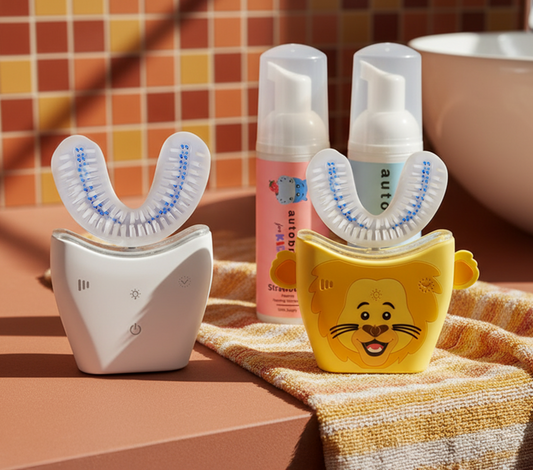
10 Home Remedies for Sensitive Teeth
Are your teeth sensitive to cold or warm water?
How about sweet or salty food?
Does a gust of wind give you some tooth pain, too?
Then you may have a condition called tooth sensitivity.
The good news is, you don't have to suffer for long. All you need to do is try any of the home remedies for sensitive teeth below.
But first things first...
What Causes Teeth Sensitivity?

Tooth sensitivity occurs when the tooth enamel—the teeth’s protective layer—is worn down. When this happens, it exposes dentin, a structure that supports the tooth.
It also exposes the nerve endings responsible for transmitting the sensations you feel to your brain.
While brushing hard and eating acidic foods are often to blame, other factors also cause sensitivity like the following:
Gum Recession
As you age, your gums recede or pull away from the teeth. This exposes the root dentin and the nerve endings that relay pain.
Gingivitis or Gum Disease
Apart from aging, plaque and tartar can make your gum recede. Disease can set in, eventually destroying the bony part of your teeth.
Cracks in Teeth or Fillings
A crack can go as far as the root. Should this happen, you'll feel tooth pain whenever you take something cold.
How Long Do Teeth Stay Sensitive?
As long as the enamel remains exposed, you will experience tooth sensitivity.
If you’re waiting for dental treatment, you can try any home remedies for sensitive teeth below.
What Home Remedies Can You Use for Tooth Sensitivity?

There are several items in your cupboard that you can use for sensitive teeth. Here are some of them:
Salt Water Rinse
Salt has both anti-bacterial and anti-inflammatory properties. It also offers pain relief, making it one of the best home remedies for tooth sensitivity.
To make a saltwater rinse, you need to:
- Add 1/2 or 3/4 teaspoon of salt to a glass of lukewarm water. Mix it well.
- Gargle the mouthwash for about 30 seconds before spitting it out.
Hydrogen Peroxide Mouthwash
Hydrogen peroxide is a known antiseptic. It can get rid of bacteria that cause gum inflammation and tooth pain.
To create this mouthwash, you need to:
- Combine two caps of hydrogen peroxide with two caps of warm water. Mix well.
- Gargle the solution for 30 seconds.
- Spit the solution out. Make sure to rinse your mouth with plain water afterward.
Coconut Oil Dental Rinse
Coconut has strong anti-microbial properties, making it perfect against plaque and gum disease.
To use coconut oil, swish it throughout your oral cavity. This process, called oil pulling, helps cleanse your mouth thoroughly.
Coconut oil makes this happen through saponification, a process that keeps germs from adhering to your sensitive teeth.
Clove Oil
Clove oil is rich in eugenol, a natural pain reliever for sensitive teeth.
To use, pour some clove oil into a cotton ball and apply it to the affected area.
You can also make your own clove oil by crushing cloves and mixing it with olive oil.
Garlic
Garlic is rich in allicin, relieving pain and fighting bacteria.
You can make thin garlic slices and apply them directly to your sensitive teeth. You can also create a paste by mixing a ground clove, a few drops of water, and one teaspoon of salt.
Whatever method you use, make sure to leave the garlic remedy on the area for about 10 minutes.
Honey and Warm Water Wash
Honey is one of the many oral health remedies that help fight bacteria. Plus, it can help reduce inflammation and tooth pain.
To use, mix warm water with a tablespoon of honey. Using this regularly should keep sensitivity at bay.
Turmeric Rinse
Turmeric is famous for being a flavorful spice. But unknown to many, it offers anti-inflammatory benefits as well.
When it comes to sensitive teeth, it's as simple as massaging ground turmeric on the affected areas.
You can also create a DIY toothpaste by mixing the following:
- one teaspoon turmeric
- 1/2 teaspoon salt
- 1/2 teaspoon mustard oil
Apply this paste to your sensitive teeth regularly.
Green Tea Oral Treatment
Green tea is not only refreshing to drink, but it may also improve your oral health. It contains antioxidants that help relieve sensitivity symptoms.
You can strengthen your teeth by swishing unsweetened green tea rinse daily.
Vanilla Extract Mouth Rinse
Vanilla does more than treat sensitive teeth. It may prevent bacterial accumulation in the mouth, too.
To use, pour some vanilla extract on a cotton ball. Place it on the affected area and leave it for a few minutes.
Capsaicin Mouth Rinse
Capsaicin is a compound that makes peppers spicy. It also helps relieve pain and sensitivity.
To enjoy these benefits, you should use capsaicin as a toothpaste or mouthwash.
Like most patients, you'll feel some burning initially. However, your sensitivity symptoms will subside in the long run.
How Can You Prevent Tooth Sensitivity?

As always, prevention is better than cure. You can reduce tooth pain by following these tips:
Avoid Brushing Too Hard
When you brush your teeth too hard in a side-to-side direction, you remove more than just plaque. You end up eroding the enamel as well.
To help reduce tooth discomfort, use a soft-bristle toothbrush at least twice a day. It's best to work it at a 45-degree angle.
Better yet, you can use autobrush, a U-shaped electric brush. It comes with soft nylon bristles, making it perfect for sensitive teeth and gums. It was also shown across 2 studies to not cause excess enamel abrasion when used as directed.
Stop Whitening Your Teeth (For Now)
Everybody wants to have pearly-white teeth. However, it may cause some tooth sensitivity for a couple of days.
Instead of using bleaching solutions, it's better to use something less abrasive like the autobrush instead.
Apart from thoroughly cleaning your teeth, it offers whitening benefits as well. Paired with the autobrush Pro Whitening Package, all you have to do is apply the whitening pen on your teeth, mount the tray on your autobrush, and bite down on the autobrush whitening tray with the blue LED lights on.
It easily removes stubborn stains like wine and coffee from teeth in just 10 minutes.
You can see visible results in just two sessions, ideal for when you need that photo-ready smile.
Stay Away From Acidic Foods and Drinks
Soda, candies, and sugary carbs can wear the enamel down and bring discomfort.
That said, it's better to snack on cheese, yogurt, and fiber-rich food instead. Sugarless gum is another good alternative.
For drinks, it's best to sip on milk, black tea, or green tea.
Any of these will moisten your mouth with saliva, which fights both acid and bacteria.
If you can't avoid eating acidic food, don't brush right away. Wait for at least an hour to protect your teeth.
Don't Smoke
Smoking can cause gingivitis or gum inflammation. If left untreated, these swollen gums will recede and expose the nerve endings.
Stop Clenching Your Jaw
Patients who are under stress are more likely to clench or grind their teeth. When you do this, you erode the enamel even more.
Stress reduction is vital. But if it does not provide relief, then you need to undergo some dentistry work.
Depending on your case, you may need to get your teeth fixed. You may also have to use a mouth guard or take a muscle relaxant.
Use Dental Products Made for Sensitive Teeth
A desensitizing toothpaste can help reduce tooth sensitivity. It could seal the gaps in the enamel, providing short-term relief. It also helps restore and reinforce this layer, strengthening your teeth in the long run.
A dentistry gel is another good option. It contains fluoride, helping relieve pain and strengthen the enamel. Your dentist may apply this, though you have the opportunity to use a home kit as well.
When Should You Seek Dental Treatment?
You should see your dentist at least once a year.
If you're like other patients, you may even need to undergo dental services more often. As always, this will depend on the situation.
During a routine dental visit, you may have to undergo scaling. This procedure will help remove plaque and tartar affecting the gums.
Your dentist may need to seal or fill the cracks if they're the culprits behind your tooth sensitivity. In some cases, they may have to remove the tooth entirely.
If your gums have receded, your dentist may prescribe you some medications. They may even have to perform a gum graft as needed.
Final Thoughts
Sensitive teeth occur due to enamel erosion, which exposes the nerve endings.
You may treat this condition with the help of home remedies made from saltwater, clove oil, garlic, and other household products.
While these solutions help, it's always best to see your dentist at least once a year.










































